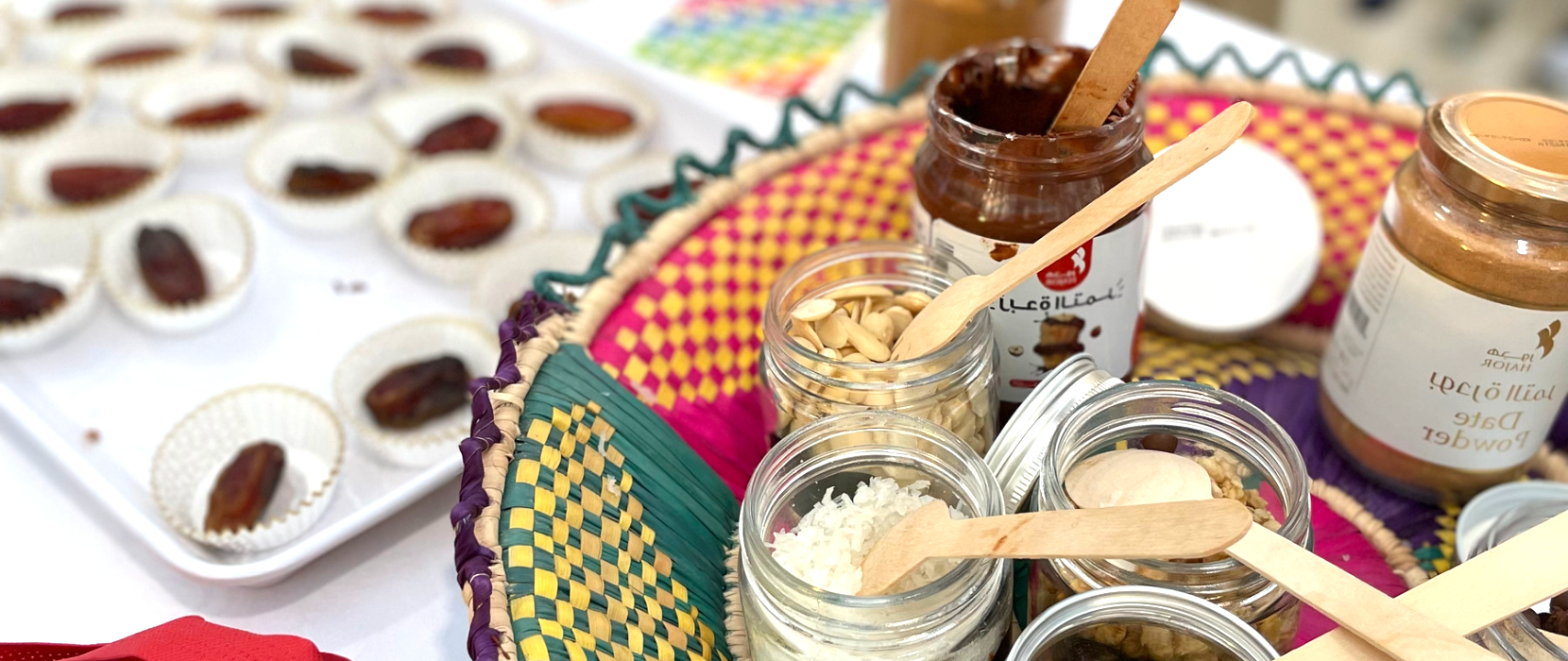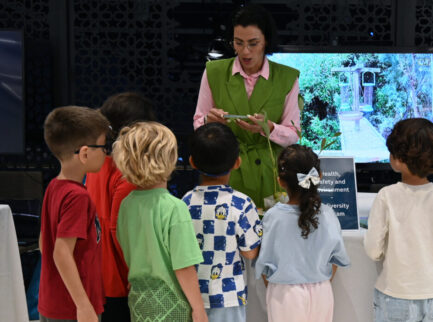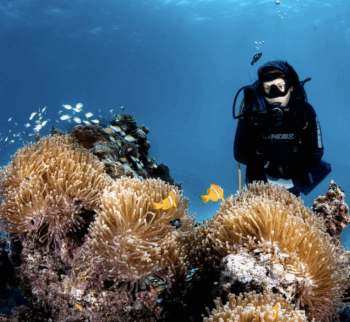The Office of Sustainability joined the fun-filled and educational Plant Science Family Night at The KAUST School last March 6th. The event was a great opportunity for children and their parents to discover the importance of plants and how they impact our daily lives. With 40 unique stations, each showcasing various topics and displays, visitors had the chance to learn and experience the science of plants.
At the sustainability corner, students discovered how to turn organic waste into healthy fertilizer for their garden through composting or how climate change affects strawberry production. Over at the Office of Sustainability booth, visitors learned about the many ways a date palm tree can be used to improve the sustainability of its production, from fruits and seeds to frowns and stem.



The event was made possible by the Center for Desert Agriculture and The KAUST School, and included the participation of the Office of Sustainability, Red Sea Farms, Water Desalination and Reuse Center, KAUST Garden Society, Students for Sustainability, the Food Safety & Quality Control Team from Community Life, among others.
Inaugurating the activity, H.H. Prince Faisal Al-Saud presented a special tree-planting initiative called “Plant a tree for them,” which is aligned with Saudi Arabia’s Vision 2030 and the Saudi Green Initiative. The vision aims to increase the ratio of green space and preserve the existing ecosystem, a crucial goal for the future of the Kingdom. With a partnership between the government, private, and other sectors, the Saudi Green Initiative aims to plant 10 billion trees around the Kingdom in the coming years.
Protecting all life on land is the main focus of SDG 15, the UN goal dedicated to protecting, restoring, and promoting the sustainable use of terrestrial ecosystems, sustainably managing forests, combating desertification, halting and reversing land degradation, and stopping biodiversity loss. KAUST supports Life on Land through outreach and awareness campaigns and through various research projects, including monitoring mangroves and land-based ecosystems, or investigating adaptation strategies to help local flora, such as the date palm, fight diseases and adapt to climate change. Other related projects can be found in our SDG report.




